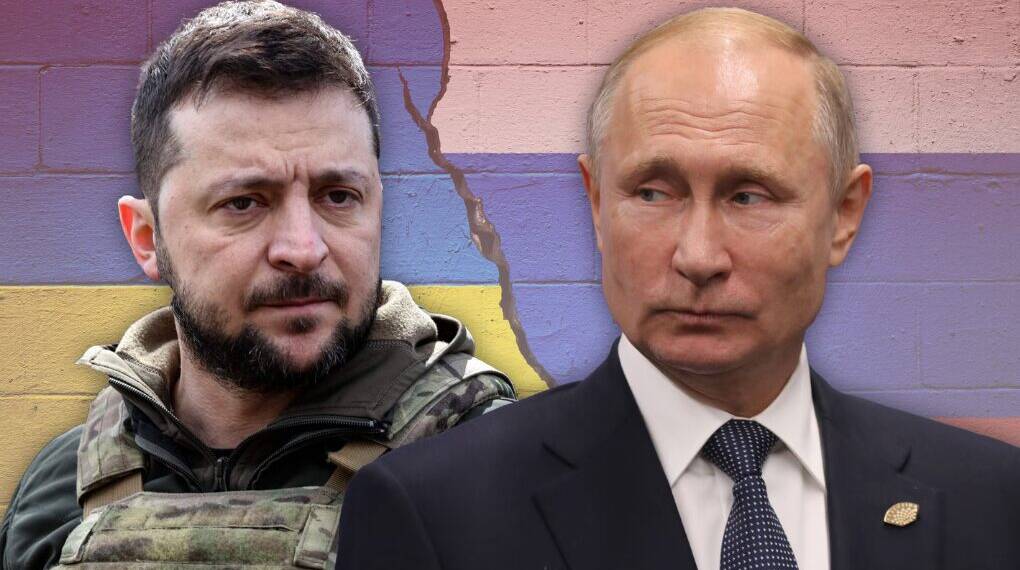As winter approaches and energy shortages worsen, Ukrainian President Volodymyr Zelenskyy has called for an immediate ceasefire along the current frontlines, urging Russia to halt its ongoing strikes on critical infrastructure. The appeal follows the indefinite postponement of the anticipated Trump-Putin peace summit, raising fresh uncertainty about the future of diplomatic efforts to end the war.
Zelenskyy Calls for Ceasefire Along Current Lines
In a televised address on Tuesday evening, President Zelenskyy announced that Ukraine was “ready for ceasefire negotiations” if Russia agreed to stop its attacks.
“Russia has lost interest in diplomacy,” he said. “They are escalating ahead of winter, plunging our people into darkness. But we are prepared to talk – if Moscow stops the bombs.”
Zelenskyy indicated that Ukraine would be willing to freeze the conflict at its existing frontlines while awaiting the delivery of additional Western weapons. His statement reflected Kyiv’s concern over the humanitarian and energy challenges expected in the coming months.
Russian Strikes Intensify on Energy Infrastructure
According to Ukrainian officials, Russia has intensified its strikes on the country’s energy sector in recent weeks. Since mid-October, more than 3,700 drones and nearly 50 missiles have reportedly targeted power stations, coal facilities, and transmission networks across multiple regions, including Chernihiv, Sumy, and Dnipropetrovsk.
One of the most severe incidents occurred on October 19, when an attack on a DTEK coal mine temporarily trapped 192 workers underground. All were later rescued. Authorities have reported widespread power outages and damage to key facilities, with tens of thousands of residents affected.
Ukrainian officials have described the strikes as part of a strategy to weaken the country’s energy resilience before winter. Russia has not commented directly on the allegations but maintains that its operations target military-related sites.
Trump-Putin Summit Postponed Indefinitely
The ceasefire appeal coincided with a diplomatic setback following the indefinite postponement of the Trump-Putin summit, which had been scheduled to take place in Budapest, Hungary. The meeting was expected to build on discussions from the August “Alaska talks,” where both sides explored preliminary steps toward reducing hostilities.
The decision to delay the summit reportedly followed an October 20 phone conversation between U.S. Secretary of State Marco Rubio and Russian Foreign Minister Sergey Lavrov. According to U.S. officials, the talks were “productive” but revealed significant differences, particularly regarding Russia’s demand for recognition of annexed territories and restrictions on Ukraine’s military posture.
President Trump stated that a meeting without meaningful progress would be “a waste of time” but noted that diplomatic channels remain open. The White House confirmed that there are currently “no plans” for an in-person meeting, though further discussions could occur later in the month.
Reactions from Washington and Europe
European and U.S. officials have expressed mixed views on the postponed summit. Some diplomats view the delay as a strategic pause, allowing Moscow to reconsider its position. Others worry it could signal a deeper breakdown in dialogue.
European leaders, including UK Prime Minister Keir Starmer and German Chancellor Friedrich Merz, have supported calls for a ceasefire. In a joint statement, they emphasized the need for “an immediate halt to hostilities” to prevent further humanitarian and economic disruption. French President Emmanuel Macron also warned that continued attacks on energy infrastructure could destabilize European energy markets.
Moscow’s Response and Negotiation Stance
In Moscow, officials have described the summit’s delay as routine and not indicative of a diplomatic collapse. Deputy Foreign Minister Sergey Ryabkov stated that “coordination continues,” while Foreign Minister Lavrov reiterated that Russia seeks a “comprehensive peace agreement” rather than a short-term truce.
Lavrov said, “A temporary ceasefire without addressing the root causes of the conflict will not bring lasting peace.” Analysts from the Institute for the Study of War (ISW) have observed that Russia’s negotiating position remains largely unchanged, with continued emphasis on security guarantees and recognition of territorial changes.
Ukraine’s Diplomatic and Military Balancing Act
Zelenskyy’s ceasefire proposal comes amid ongoing consultations with Washington. During a meeting at the White House on October 17, he requested additional air defense systems and long-range missiles to counter drone and missile attacks on Ukraine’s grid.
President Trump reiterated U.S. support for Ukraine’s reconstruction efforts and announced plans to coordinate with American energy companies on post-war recovery projects. However, the postponed summit highlights the limits of diplomatic progress and the continued uncertainty surrounding future peace initiatives.
What next? Winter Challenges and Diplomatic Uncertainty
As power outages spread and temperatures drop, Ukraine faces mounting pressure to secure both military aid and diplomatic support. Zelenskyy’s ceasefire call reflects a pragmatic attempt to stabilize conditions ahead of winter, but the lack of movement in U.S.-Russia talks leaves outcomes unclear.
“Putin only understands pressure,” Zelenskyy noted in his address, emphasizing both the need for continued sanctions and potential dialogue.
Whether the postponed Budapest summit eventually resumes — and whether it can produce tangible progress — remains uncertain. For now, Ukraine continues to balance defense, diplomacy, and domestic resilience as the conflict enters another difficult winter.







